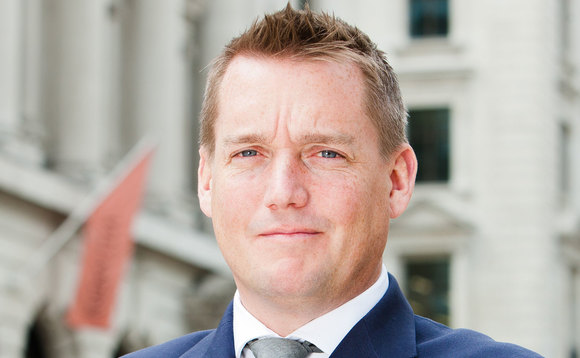
Family office perspective: turning away from traditional PE

The way in which family offices and ultra-high-net-worth individuals are currently accessing and working with the private equity industry is undergoing major change. Alice Murray explores how this shift could permanently transform the industry as we know it
This first instalment of our two-part feature looks at family office demands when it comes to private equity, and their current approach to deal-doing. Read part two here.
Family offices have long supported private equity. But loosening alignment, swelling fees and insufficient reporting have turned many away from investing in funds. In response to this, an increasing number of family offices are deciding to go it alone. And there is an emerging breed of deal-by-deal managers soaking up this growing appetite.
There is an old saying: private equity guys take a great company, make it mediocre, pay no tax and still make loads of money. But it would seem this poor quip continues to resonate with family offices and high-net-worth individuals looking into the asset class.
Speaking candidly behind closed doors at a recent family office event, the views expressed towards private equity were broadly negative. "Private equity is losing alignment," said one participant. "The private equity cycle does not match family office succession planning," said another. One of the loudest complaints was how quickly GPs can forget about old funds when a new one is raised.
Says Del Huse (pictured), founder of deal-by-deal manager Roycian: "Certain family offices have been put off from further investment in private equity funds because of poor communication or reporting. Some felt a lack of understanding of the families themselves, or experienced poor behaviours by GPs when their focus moved on to new fund vintages. But some of them simply no longer like the concept of the blind pool and want greater control in the investment decision and process."
"Family offices probably did get frustrated with private equity during the [financial] crisis," says Greg Harris, senior investment manager at Maitland. "Some funds took a long time to draw down capital. And for earlier vintages operating through the crisis there was – and probably still is – a large tail of deals still not realised."
In response to this dissatisfaction, family offices and ultra-high-net-worth individuals are increasingly seeking out more direct exposure. "We see a lot more appetite for deals," says Harris.
By investing in companies directly, typically alongside a ‘deal-by-deal manager' or ‘independent sponsor', family offices are able to structure deals in a manner with which they are more comfortable. This typically means deals carry less debt, are longer term and exits are reached at a natural point for the company. "Family offices want more control on cashflows, timing of exits and the investment itself – some often want seats on boards," says Huse.
Roger Pim, managing partner at SL Capital, says: "We are seeing an increasing number of family offices wanting to be more active. One key driver is a desire to be closer to investments. The second is a belief they can generate better returns by cutting out fees. Third, they often prefer the longer-term nature of these sorts of investments."
Trust and reputation
While private equity firms on the whole have embraced environmental and social governance, when it comes to investing personal wealth, reputation concerns take on a deeper degree of importance. "When we look at investing or co-investing, reputational risk can be an issue. The family office wears its reputation as much as a large consumer company wears its brand image," says David Wong, managing director of family office Expadis Capital.
With concerns over reputation looming large, trust is the most important factor for family offices. "The big difference between family offices and institutions is trust and relationship," says Maitland's Harris.
Nick Warr, head of private wealth at Taylor Wessing, agrees: "It is rare for family offices to invest with someone they do not have experience with, or without a track record – it is a bit of a chicken and egg situation."
In order to understand how best to work with family offices, one has to understand who they are. As Wong points out, family offices are usually more comfortable taking large concentrated positions. This is often because these investors prefer to back companies in sectors they understand. "Family offices usually have strong domain knowledge and unconscious competence in their own fields. Private equity firms will want to diversify, while family offices are comfortable running concentrated portfolios," says Wong.
This touches on a crucial aspect of working with family offices, especially when it comes to first-generation wealth: this class of investors has had huge success in building up at least one company, therefore, they have hands-on operating experience, as well as a sound network of relevant experts, which can support direct and co-investments. "The first generations are often active investors who get their hands dirty and involved with management," says Wong.
Tailor-made
There are myriad reasons why the ‘independent sponsor' or ‘deal-by-deal manager' approach is best suited to carrying out the investment needs of family offices and ultra-high-net-worth individuals. Says Nick Palairet, director at placement agent Asante Capital: "One of our clients has been investing for 25 years and does not want to go through significant regulatory hurdles or have the regions, type or size of deal they do constrained contractually." One crucial element, according to Wong, which addresses the feeling of loosening alignment, is skin in the game. "I have a rule of not passing a deal on to any of my network unless myself or Expadis is already investing in it," he says.
Not surprisingly, another factor is fees. Says Huse: "I picked up on some real backlash from family offices in relation to fees and, in particular, the misalignment of interests caused by the scale of fee income going to some GPs. To my mind, family offices are fairly relaxed about the fees needed to cover real costs – ie ‘keeping the office lights on' – but are not comfortable where the principals in private equity funds are getting real wealth creation through fees before they have created any value for their investors. To that end, I have typically offered my investors a zero-fees, zero-hurdle, carry-only, deal-by-deal model, creating much greater alignment of interests."
It would appear innovative approaches to matching private wealth with private equity deals, especially when it comes to more creative structures and agreements, has been well-received by family offices. Says Parminder Basran, co-founder and managing director of Velos Partners, which works extensively with family offices: "Private equity is selling an institutional product to high-net-worth individuals and family offices. While the ‘2:20' model works for institutions, it is not necessarily appropriate for private wealth and 10 years is often too long. There is a fundamental shift in funding models for high-net-worth individuals and their investment vehicles. For example, a trend is emerging for hybrid models that allow a combination of committed capital and co-investment. We are listening to the requirements of that particular investment community and seeing how we can adapt to their needs."
Basran's comments highlight how well-versed family offices are when it comes to fair fees. Speaking privately at a recent family office event, a former member of a large and well-known private equity firm, who is now investing on behalf of a large Italian family office, conveyed a very clear stance: "Our view is if the deal is syndicated we should pay fees as the due diligence has already been done, but we would not pay the full 2:20. Instead, we would pay a 1% management fee and then implement a step-up structure based on performance – so 1.5x equals 10% carry; 2x equals 20%. If the deal is pre-syndication, we pick a share of the due diligence cost."
This creative approach is often the basis on which these new players are being founded, explains Tim Rigby, director of Rampart Capital. "Rampart was founded on the basis of going into partnership with clients; we invest alongside them, we share the risk," he says. "On the upside, 5% goes to Rampart and we charge a much smaller management fee. Clients pay a 1.25% fee only when we have returned 10% net of fees."
Another area where deal-by-deal managers are better serving family offices is reporting and communication. "We look after 24 families – we know them all and speak to them individually about each investment. Big institutions cannot have that two-way conversation. This model is not scalable," explains Rigby.
Rising tide
One family office member, speaking privately, believes family offices "have a moral obligation to invest through private equity; they are best placed for connecting capital to innovation. And, they have the right credentials."
On top of this, the number of family offices and ultra-high-net-worth individuals (UHNWs) is growing at rapid pace. According to the Knight Frank Wealth Report 2015, there are 172,850 UHNWs globally – that number has increased by 3% from 2013 to 2014 – holding onto an aggregate $20.8tn. Their wealth is also rising – 82% of wealth advisers have reported that their UHNW clients have increased their net worth.
Furthermore, this wealth increase is happening locally. Europe remains the best destination for UHNWs, currently counting 60,565 of these individuals, with total wealth coming in at $6.4tn (surpassing the US's 44,922 UHNWs with combined wealth of $5.5tn and even Asia, with 42,272 UHNWs totalling $5.9tn of combined wealth).
This rising pocket of wealth has not gone unnoticed. Says Nick Palairet, a director at placement agent Asante Capital: "In 2014, Asante spotted a gap in the market for an emerging breed of seasoned, high-quality, deal-by-deal managers. The groups Asante has partnered with have, in most cases, been running successful deal-by-deal models through multiple cycles and despite suggestions that they move towards a fund model, want to retain discretion over how much they invest and where and so are not interested in the fund model."
Latest News
Stonehage Fleming raises USD 130m for largest fund to date, eyes 2024 programme
Multi-family office has seen strong appetite, with investor base growing since 2016 to more than 90 family offices, Meiping Yap told Unquote
Permira to take Ergomed private for GBP 703m
Sponsor deploys Permira VIII to ride new wave of take-privates; Blackstone commits GBP 200m in financing for UK-based CRO
Partners Group to release IMs for Civica sale in mid-September
Sponsor acquired the public software group in July 2017 via the same-year vintage Partners Group Global Value 2017
Change of mind: Sponsors take to de-listing their own assets
EQT and Cinven seen as bellweather for funds to reassess options for listed assets trading underwater








